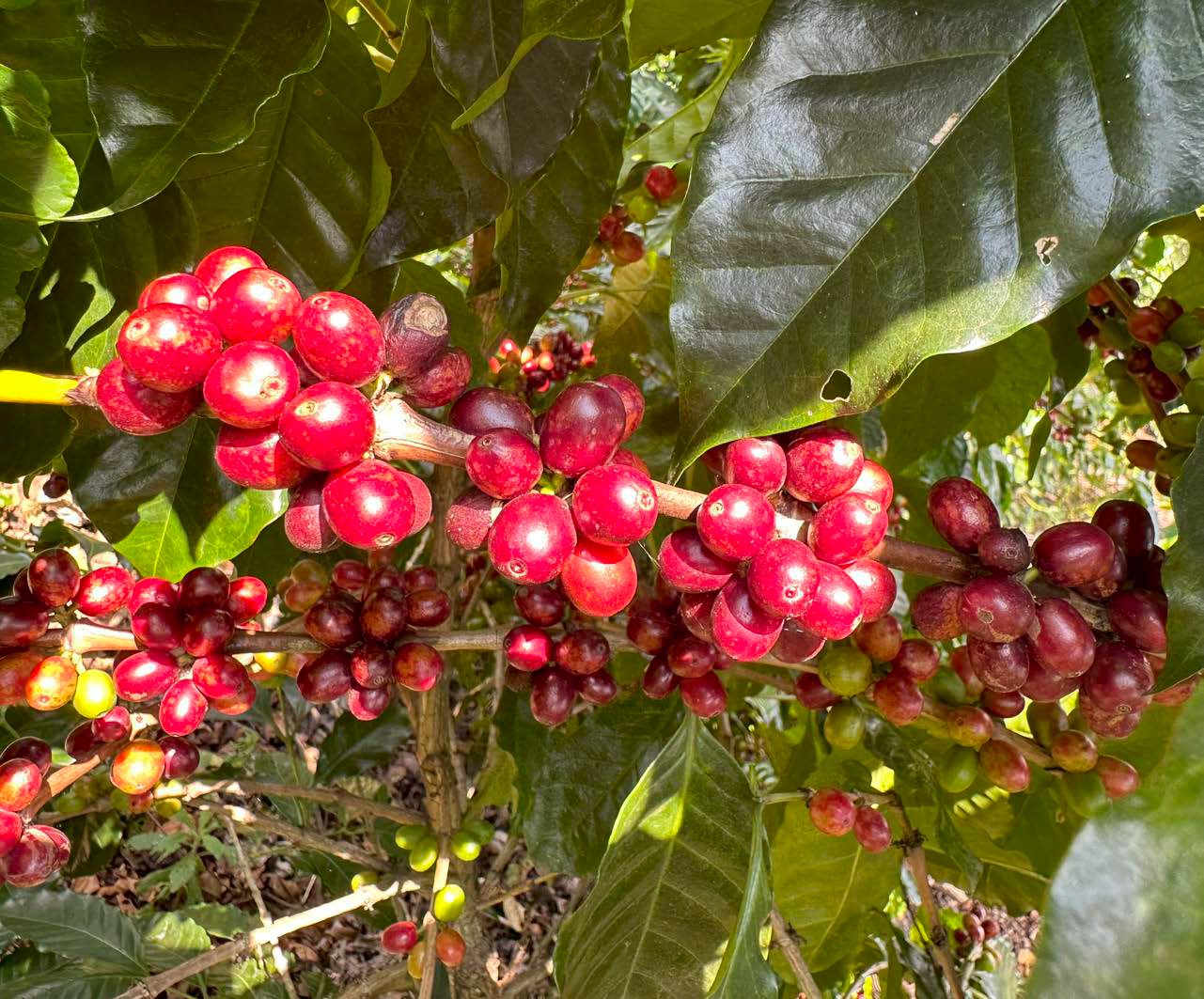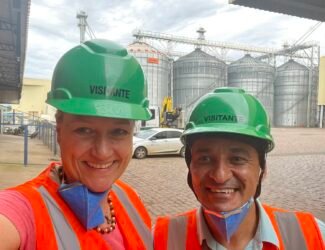
Grounds for Action Report 2024: Analyzing Progress in Coffee Sustainability
The “Grounds for Action” report from the 2024 Sustainable Coffee Challenge presents significant strides and ongoing challenges in the global coffee sector’s journey toward sustainability. This year’s report reveals both encouraging advancements and areas that require greater focus, as the coffee industry pushes toward its collective 2025 goals.
The Sustainable Coffee Challenge is a vibrant coalition of 122 partners from across the coffee sector, aiming to make coffee the world’s first fully sustainable agricultural product. By aligning strategies with environmental and social sustainability goals, the challenge tracks commitments from key industry players to monitor progress and stimulate collective action.
Major Findings from the 2024 Report
65% of Stakeholders Report Annual Progress
One of the standout findings of the report is that 65% of stakeholders reported progress on their commitments for the year. This marks a significant increase, more than a quarter, from last year’s report. This progress showcases growing momentum as stakeholders accelerate efforts in sustainability, driven by both industry pressure and emerging regulations.
The upward trajectory reflects that more companies and organizations are embedding sustainability into their core operations. However, it also serves as a reminder that the industry needs to pick up the pace if it wants to meet the 2025 goals.
Focus on Nature: 50% of Public Commitments
Half of the public commitments made by stakeholders focus on nature, highlighting an increasing awareness of the vital role environmental sustainability plays in the coffee sector. This is a 40% year-over-year increase in commitments naming the environment as their primary focus, demonstrating a growing alignment between industry practices and global efforts to tackle climate change.
These commitments often include practices like forest conservation, biodiversity protection, and climate resilience initiatives. In fact, forest conservation and restoration interventions are the most popular among stakeholders, accounting for 41% of all commitments made, closely followed by climate change initiatives, which represent 37%. The focus on nature reflects not only a response to industry-wide concerns but also a reaction to new legislation, such as the European Union’s deforestation-free regulations.
New Commitments Focus on Biodiversity and Fresh Water
Since 2023, five new commitments have been introduced with a direct focus on biodiversity or freshwater resources. These commitments illustrate a broader understanding of the multifaceted environmental issues that affect the coffee sector. Freshwater conservation, in particular, has gained prominence as the coffee belt countries—those producing the majority of the world’s coffee—are often located in regions facing water scarcity or pollution challenges.
Impact Spanning 51 Countries
The commitments tracked in the report cover 51 countries across the coffee belt, from Latin America to Africa and Southeast Asia. This global footprint demonstrates the extensive reach of the Sustainable Coffee Challenge’s influence, with actions taken to address sustainability concerns in diverse geographical contexts.
The Need for Increased Guidance and Transparency
However, the report also highlights a critical area for improvement. Nearly 48% of commitments are self-reported, relying on internal (first-party) sources to track progress. This raises questions about the consistency and reliability of the data, pointing to a need for more robust third-party verification and guidance. As the industry grows more complex, there is an increasing demand for transparent and standardized reporting systems to ensure that sustainability claims are credible and verifiable.
Contribution to 2025 Targets and Progress Status
Eighty-one percent of the commitments contribute directly to the collective 2025 targets set by the Sustainable Coffee Challenge. While this is a positive figure, there is still much work to be done. On average, the 2025 targets are only 38.5% complete, reflecting the need for greater effort in the coming years to meet the ambitious goals laid out in 2020.
The 2025 targets, which cover four key areas—People, Planet, Coffee, and Markets—are designed to transform the coffee sector into one that not only sustains itself but also supports the environment and the people who depend on it.
Challenges in Meeting Forest Conservation Goals
One of the report’s key environmental metrics is the restoration of tree cover and the conservation of forests. The Sustainable Coffee Challenge set a target to restore 1.5 million hectares of tree cover and conserve an additional 500,000 hectares of forest by 2025. So far, progress has been slow, with just 24% of the tree restoration goal and 24% of the forest conservation target met. While there has been significant activity—particularly through tree-planting initiatives—many stakeholders are struggling to quantify the long-term environmental impacts of these actions.
The Role of Climate Change
Climate change remains one of the most pressing issues for the coffee industry. With nearly 37% of commitments focusing on climate-related initiatives, stakeholders are increasingly recognizing the importance of mitigating climate risks. The effects of climate change are already being felt across the coffee belt, where erratic weather patterns and extreme climate events such as droughts and floods are reducing yields and threatening the livelihoods of coffee farmers.
Innovative approaches such as climate-resilient coffee varietals, agroforestry, and regenerative agriculture are being promoted to combat these challenges. However, the report stresses that more needs to be done to scale these efforts, particularly in vulnerable regions.
The Coffee Industry’s Regulatory Response
The coffee industry is under growing regulatory pressure to address its environmental and social impact. Key legislation, such as the European Union’s deforestation-free regulation, is pushing companies to adopt stricter sourcing standards and report on their environmental impact. Many commitments made in the report align with these new regulations, reflecting the growing influence of external factors on corporate sustainability strategies.
The introduction of groundbreaking regulations and industry standards is leveling the playing field and providing clearer expectations for how coffee companies should mitigate their environmental and social footprints. This regulatory pressure has catalyzed the shift from voluntary sustainability commitments to mandatory compliance, with the added scrutiny pushing companies to be more transparent about their practices.
Opportunities for the Future
Looking forward, the report emphasizes the need for collective action and increased investment to reach the 2025 goals. While progress has been made, the report calls for a shift from merely “doing less harm” to “doing more good” by embracing innovative climate finance mechanisms and nature-based solutions.
The Challenge encourages stakeholders to ramp up efforts to meet their commitments, broaden their focus, and lead the industry toward more ambitious sustainability outcomes. By leveraging partnerships, increasing transparency, and investing in on-the-ground initiatives, the coffee sector can unlock significant opportunities for long-term environmental and social resilience.
Conclusion: A Pivotal Moment for the Coffee Sector
The “Grounds for Action” report paints a picture of an industry at a crossroads. While there is clear evidence of progress, the pace must accelerate if the coffee sector is to achieve its 2025 sustainability targets. With growing regulatory demands, heightened consumer awareness, and the tangible impacts of climate change, the coffee industry has a unique opportunity to transform itself into a force for environmental stewardship and social good.
The Sustainable Coffee Challenge remains optimistic, underscoring the power of collaboration and the role that the coffee sector can play in addressing some of the world’s most pressing sustainability challenges. The journey toward 2025 will not be easy, but with continued commitment and innovation, the coffee industry can indeed make a significant contribution to a more sustainable and equitable future.



